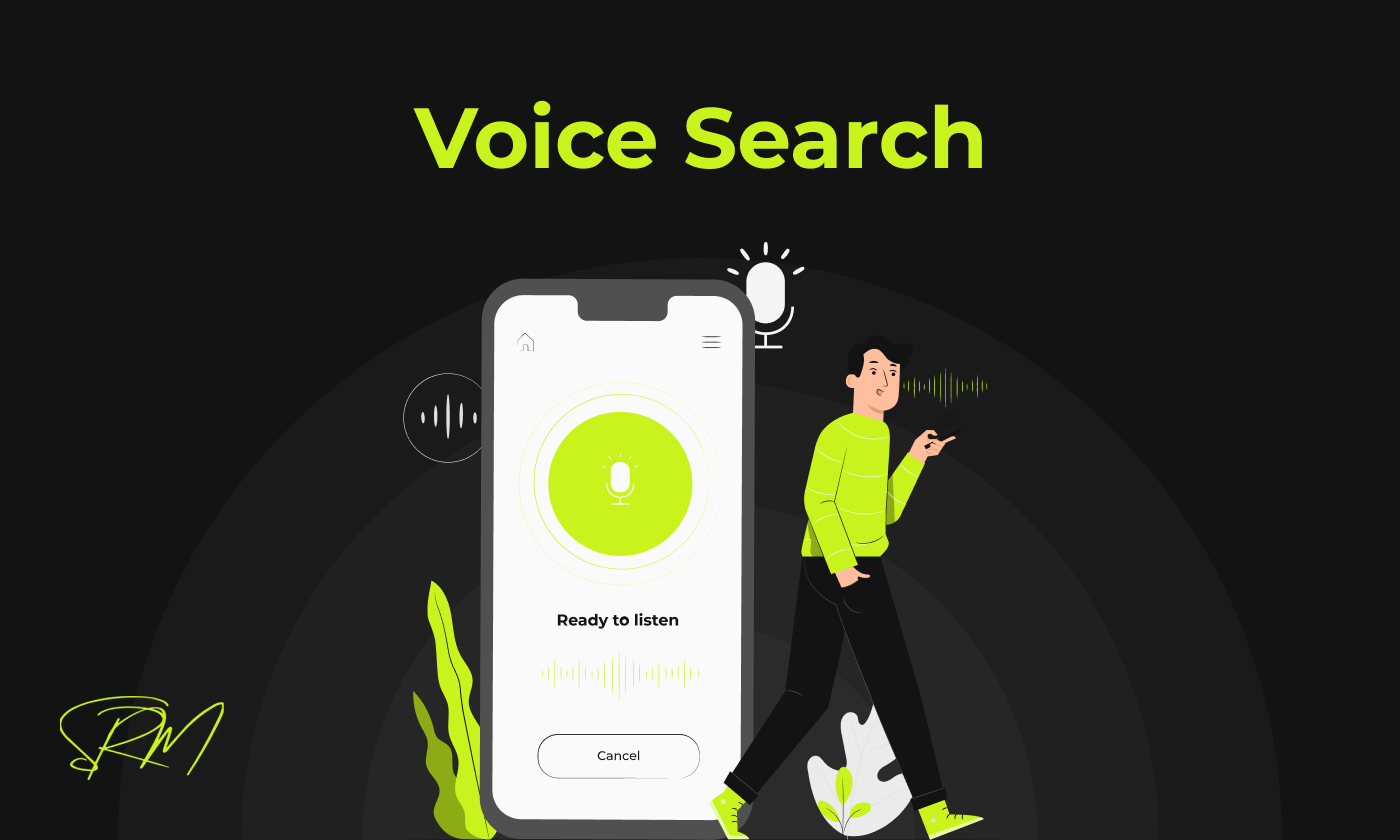
Voice Search SEO means setting up your website so it shows up when people use voice assistants like Siri, Alexa, or Google Assistant to search. Since more people now use their voices to look for things, it’s important for businesses to adjust their strategies. By optimizing for voice search, you make it easier for users to get quick and helpful answers, which can also help your business get more traffic and stay ahead in the digital world.
In this blog post, we’ll explore what Voice Search SEO is and why it’s important for businesses today. Optimizing your website can help improve visibility, enhance user experience, and keep you ahead in the digital space.
How Voice Search Differs from Traditional Search
Voice searches are different from regular text searches because people use full sentences and ask questions more naturally. Instead of typing short words, they speak like they’re having a conversation, so it’s important for businesses to adapt their content.
- Natural Language Queries – People ask complete questions, like “What is the best way to get to the airport?” instead of just typing “best route airport.” This means content should answer questions in a simple, natural way.
- Longer Search Phrases and Questions – Voice searches are usually longer, like “What time does the nearest coffee shop close?” instead of just “coffee shop hours.” Businesses need to focus on long, specific phrases and common questions to rank better.
Why Voice Search Matters for SEO
More and more people are using voice assistants like Siri, Alexa, and Google Assistant, which makes voice search an important part of SEO. As voice searches become more common on smartphones and smart devices, businesses need to adjust their content to match this trend and stay competitive.
The main reason voice search is important is because it improves user experience and convenience. People can get answers quickly without typing, which is great for when they’re on the move or need hands-free help. By optimizing for voice search, businesses can offer a better experience and meet customer needs more effectively.
Key Strategies to Optimize for Voice Search
To make your website easier to find through voice searches, it’s important to focus on strategies that match how people speak. This means targeting natural language, using long phrases, and optimizing for local searches. By adjusting your content in these ways, you can improve your chances of ranking higher.
- Targeting Conversational Keywords – People use natural, everyday language when searching with their voice. So, instead of just targeting short words like “best pizza,” try phrases like “Where can I find the best pizza nearby?”
- Leveraging Long-Tail Keywords – Voice searches are usually longer and more detailed. For example, instead of just “weather,” try phrases like “What’s the weather like in New York tomorrow?”
- Optimizing for Questions and “Near Me” Searches – Many voice searches are questions or related to finding things close by. Include questions and “near me” terms in your content, like “restaurants near me” or “plumbers near me,” to show up in those results.
Importance of Local SEO in Voice Search
Local SEO is really important for voice search because people often use their voice to find businesses near them. To make sure your business shows up in these searches, claim and update your Google My Business profile with correct details like your address and working hours. Use local keywords in your content so search engines know where you’re located. Also, ask happy customers to leave reviews—this helps improve your ranking and makes your business look more trustworthy to people nearby.
Improving Website Speed and Mobile Friendliness
Improving website speed and making your site mobile-friendly is important for getting better results in voice-enabled searches. People expect fast and smooth experiences when using voice assistants, so a slow site can lead to frustration and lower rankings. Plus, with mobile-first indexing, Google focuses on your site’s mobile version, which is key for ranking well in voice search results.
- Why Speed is Crucial – Speed matters because people want quick answers when using voice assistants. A slow website can make users leave before it even loads. Keeping your site fast helps keep visitors happy and improves your chances of ranking higher.
- Mobile-First Indexing and Its Role in SEO – Google now looks at your mobile site first when ranking pages. Since many people use mobile devices for voice searches, having a mobile-friendly site helps you rank better in those searches.
Structuring Content for Voice Search
To optimize your content for voice search, focus on giving simple, direct answers to common questions. Featured snippets, which show up at the top of search results, are often used by voice assistants to provide quick answers. By organizing your content to clearly address these questions, you increase your chances of appearing in those top spots. Having FAQ pages with clear answers to common questions also helps search engines find your content easily for voice searches, making it more likely that people will find your site.
Future of Voice Search SEO
The future of SEO for voice-enabled devices looks bright as technology keeps advancing. New trends are shaping how people search, and businesses need to adjust their strategies to meet the growing demand for quicker and smarter search experiences. By staying prepared for these changes, your site can stay relevant and visible. For expert guidance, a digital marketing expert can help you navigate these shifts and make the necessary adjustments to stay ahead.
- Trends Shaping Optimization – As AI and machine learning get better, voice search results will become more accurate and focused on what users need. This means creating content that sounds natural and matches how people talk will be even more important.
- Preparing for the Evolving Search Landscape – With more people using voice assistants every day, businesses need to focus on optimizing for local and mobile searches. This means making sure your content is quick, easy to find, and relevant to users’ needs to stay competitive in the future.
Final Thoughts
To sum up, optimizing for voice search is a must if you want to stay ahead in the digital world. The main points to remember are focusing on natural language, improving local SEO, and making sure your site is fast and mobile-friendly. With more people using voice assistants, now is the right time to make these changes. By doing so, you can improve your site’s visibility, provide a better experience for users, and stay ready for future search trends. If you’re looking to take it a step further, consider consulting a voice search optimization expert to ensure you’re on the right track.
Check out our latest blog on – “Mobile Optimization”
Frequently Asked Questions (FAQ’s)
Q 1. How does voice search work?
A. Voice search works by turning your spoken words into text. The system then finds the best answer from the web and gives it back to you in a quick, spoken response.
Q 2. Why is voice search becoming more popular?
A. Voice search is getting more popular because it’s faster and easier than typing. With smart devices like phones and speakers, people like using voice commands to search while they’re on the go or need hands-free help.
Q 3. What is my voice search?
A. Voice search lets users perform searches using voice commands on the internet, websites, or apps. It’s made possible by improvements in speech recognition and first became available on smartphones, allowing people to use voice instead of typing in a search bar.
Q 4. Is voice search a Google app?
A. Google Voice Search is a feature that lets users search on Google by speaking instead of typing. Available on mobile phones and computers, it allows the device to look up information based on what you say.
Q 5. Who uses voice search?
A. Around 20.5% of people worldwide use voice search, which is a slight increase from 20.3% in Q1 2024. The highest usage was in Q2 2022, at 22.5%, followed by 21.7% in Q3 2022.





